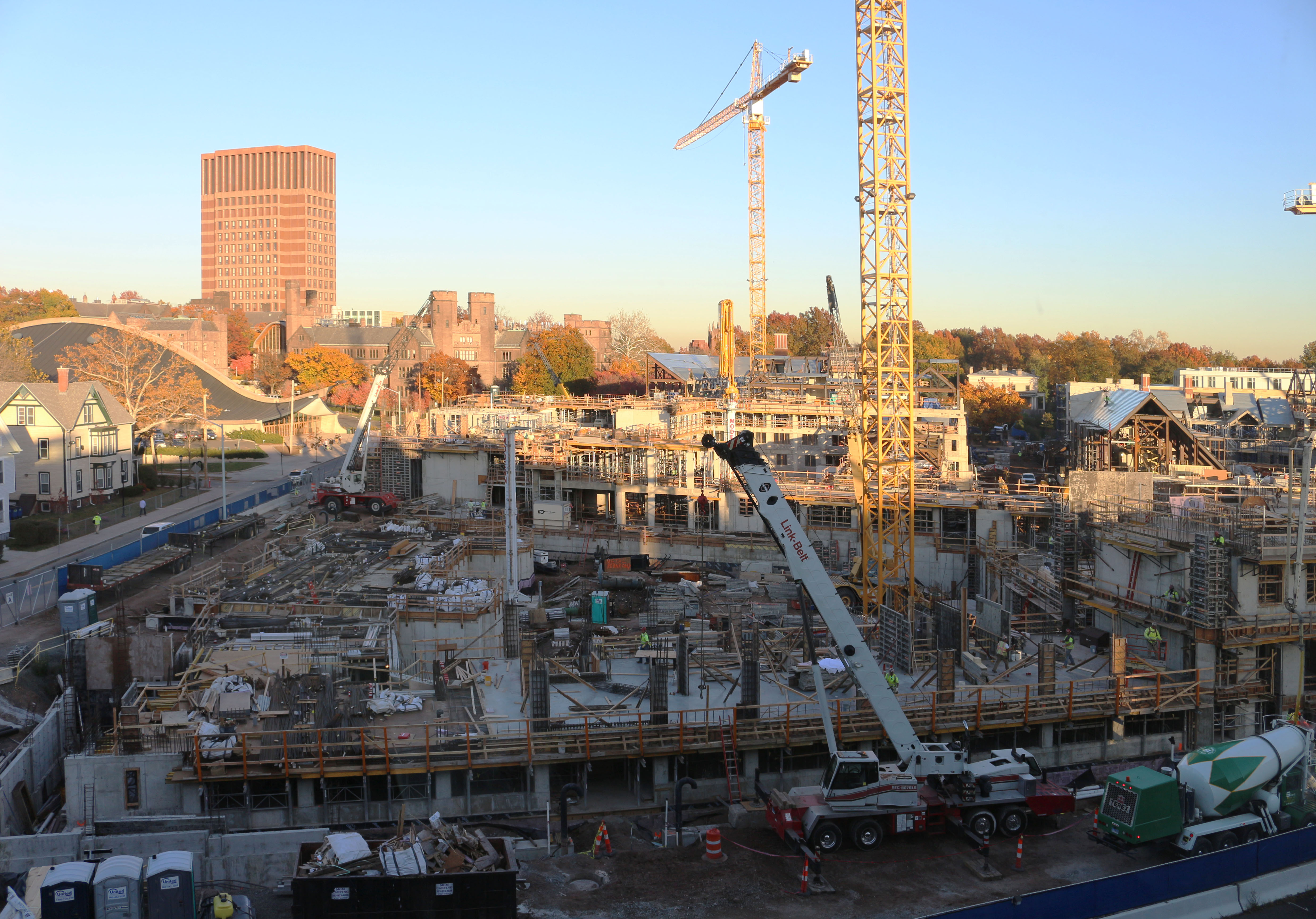
What makes Yale’s residential colleges more than college dormitories?
This is the question Yale College Dean Jonathan Holloway’s steering committee for the new colleges has been tasked with answering as the colleges’ fall 2017 opening date approaches. Yale’s residential college system, inaugurated in 1933, has long been hailed as a defining characteristic of undergraduate life at Yale. Holloway said given the significance of the residential college experience to undergraduate life, his committee aims to identify the intangible elements of community within the existing colleges. After identifying these characteristics, committee members will have to envision how they may recreate this sense of community in new spaces that do not possess the history and traditions of the other 12 colleges.
In order to do so, members of the steering committee — which includes four undergraduates, four staff members, four recent graduates and four faculty members — have reached out to several groups involved in the residential college system, and the four undergraduates on the committee are now working with the Yale College Council as a first step to collect undergraduate opinions. Committee members said the collaboration will allow them to gain a broader understanding of undergraduate residential experiences.
“We want to think about what makes residential colleges more than the sum of its parts and what makes it more than a dorm,” said Adam Willems ’17, a steering committee member. “Working with the YCC allows us to target more than just individual extracurricular groups and demographics, and will give us a holistic view.”
The undergraduate committee members have already met with the YCC’s new colleges task force twice, and will reach out to members of individual college councils. Leah Motzkin ’16, another member of the steering committee, said student representatives from the YCC and college councils are some of the most enthusiastic community members and would serve as good starting points in reaching the undergraduate population.
Joseph Tomchak ’17, a member of the YCC task force, said the group is looking into issues surrounding the new colleges by seeking student opinions through channels like the YCC Fall Survey — a survey sent to undergraduates asking their opinions on various campus issues — and will publish an independent report of its findings at the end of the semester. The collaboration with the Dean’s Office, he said, will further allow for the exchange of ideas and information.
While the group is still early in its research, members of the steering committee said they are looking into how certain residential college frameworks can help build community spirit. For example, the committee is evaluating what college masters and deans can do to create a positive atmosphere and which college-sponsored events are most well-received.
Willems said from the steering committee’s initial research, the group has found that creating traditions and culture within the new colleges may be relatively straightforward, despite the lack of college history.
“Undergraduates are here for four years, so the institutional memory in the Yale student body is relatively short,” he said. “These traditions and events don’t need to have been created in the 1930s. They can be created in 2017.”
Tomchak said the YCC task force has also heard students emphasize the influence of college masters and deans on each college’s unique culture. Because leaders for the new colleges have yet to be announced, Tomchak said a lot is still “up in the air” regarding the communities’ identities.
Steering committee members said another source of uncertainty involves who will inhabit the new colleges. Members said the steering committee does not have the statistics for the number of transfer students and annexed students that the colleges will host, and this factor could potentially affect the new college cultures.
The steering committee was formed last fall.







